I'm going to step well outside of my normal remit, and talk about an issue from the age of sail, because I think it's interesting, and because it's something that many accounts get wrong.
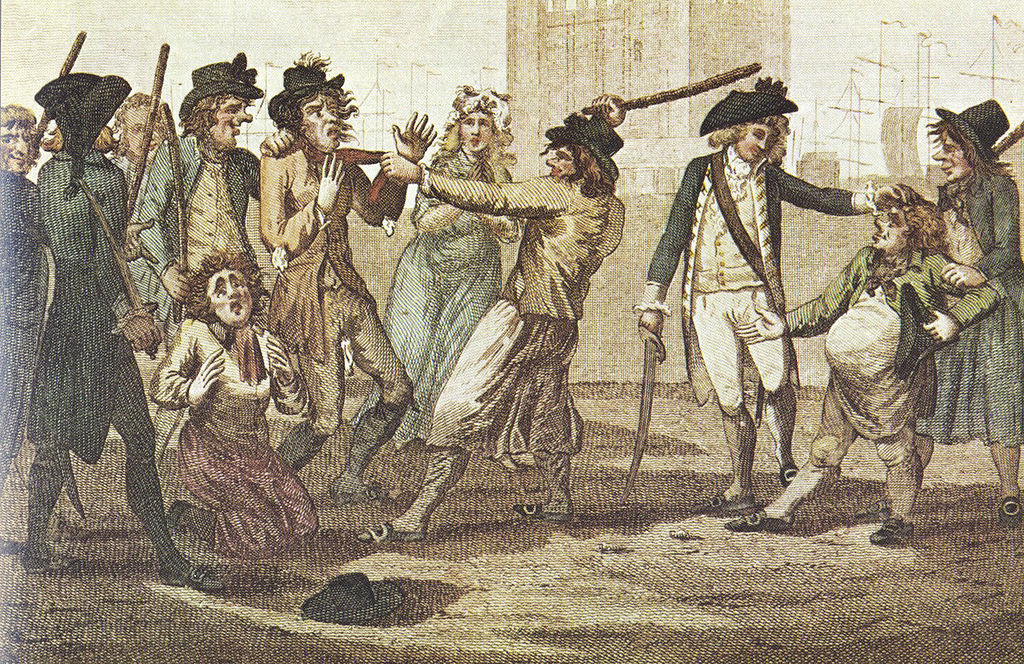
Impressment is something that most people interested in history have heard of. The usual version involves roving press gangs1 of sailors and Marines, grabbing unsuspecting men off the street, beating them up, and taking them to sea. One minute, you're a farmer, in town for a day. The next, you're a sailor, headed for the East Indies. As you probably suspect, this isn't really true. British law restricted the pressing of men for naval service to seamen, and while mistakes happened frequently, it was easy for men taken by mistake to secure their release. Captains wanted seamen, whose skills took years to develop, and not landsmen who didn't "know the ropes".2
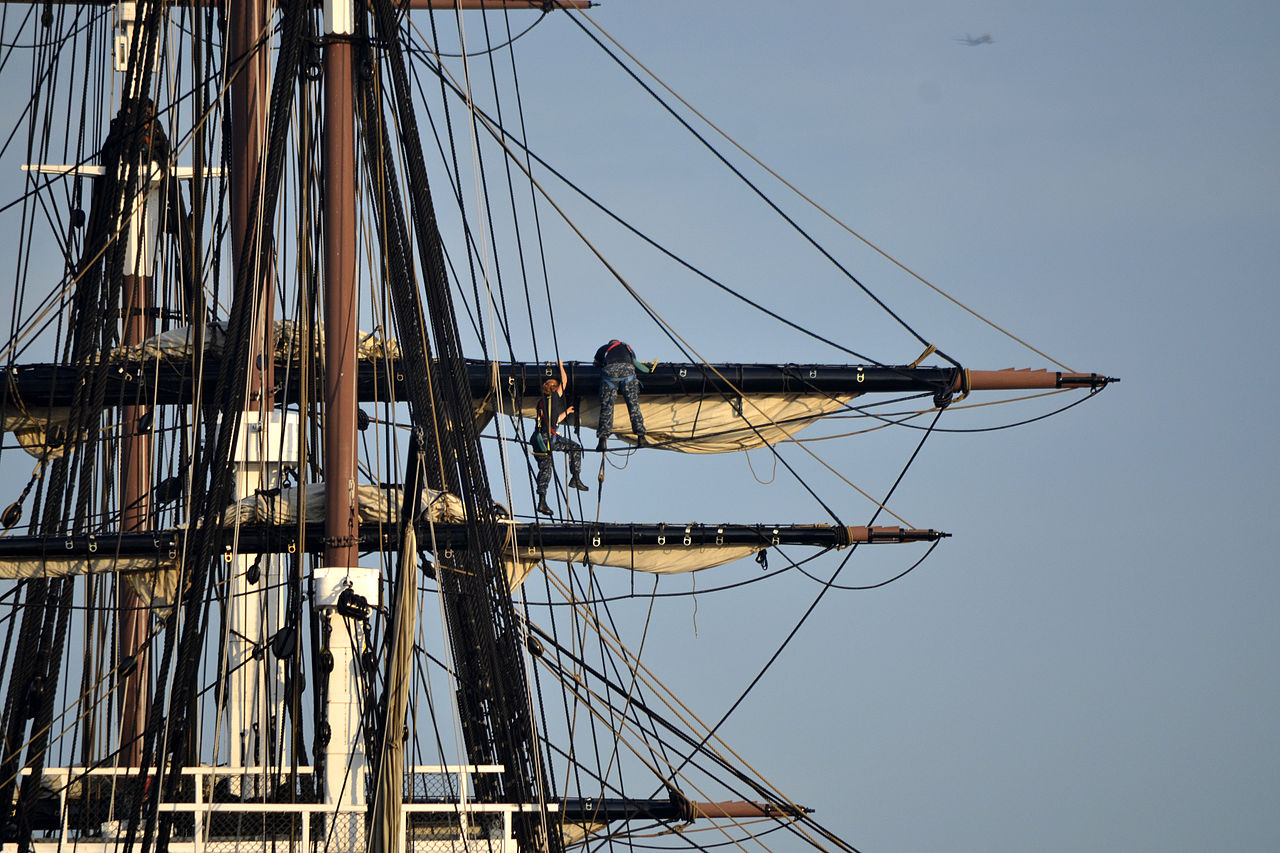
A sailing ship like Constitution has a lot of ropes
Impressment developed gradually. The basic concept that all men had an obligation to serve in defense of the realm dated back to feudal times, but its application on land had died off in the 17th century. However, the need to man the Navy had preserved it at sea. Before the beginning of the 18th century, ships were usually commissioned only for the summer, with their crews paid off and released from naval service at the end of the fighting season. They might be pressed again next year when the ships were recommissioned, but they also had a chance to go back to merchant service. As the British gained worldwide commitments and as improved ships allowed year-round operations, this practice ended. Instead, pressed seamen were kept in service for years at a time, being transferred between ships without even the chance to set foot ashore.
The situation was made more complicated by the belief that seaman had to be trained from boyhood, making it pretty much pointless for the Navy to try to expand the supply of personnel by recruiting and training landsmen. Britain's extensive merchant navy made this at least vaguely practical, but the length of wars in the Napoleonic era should have allowed them to solve their manning problems by training their own personnel.
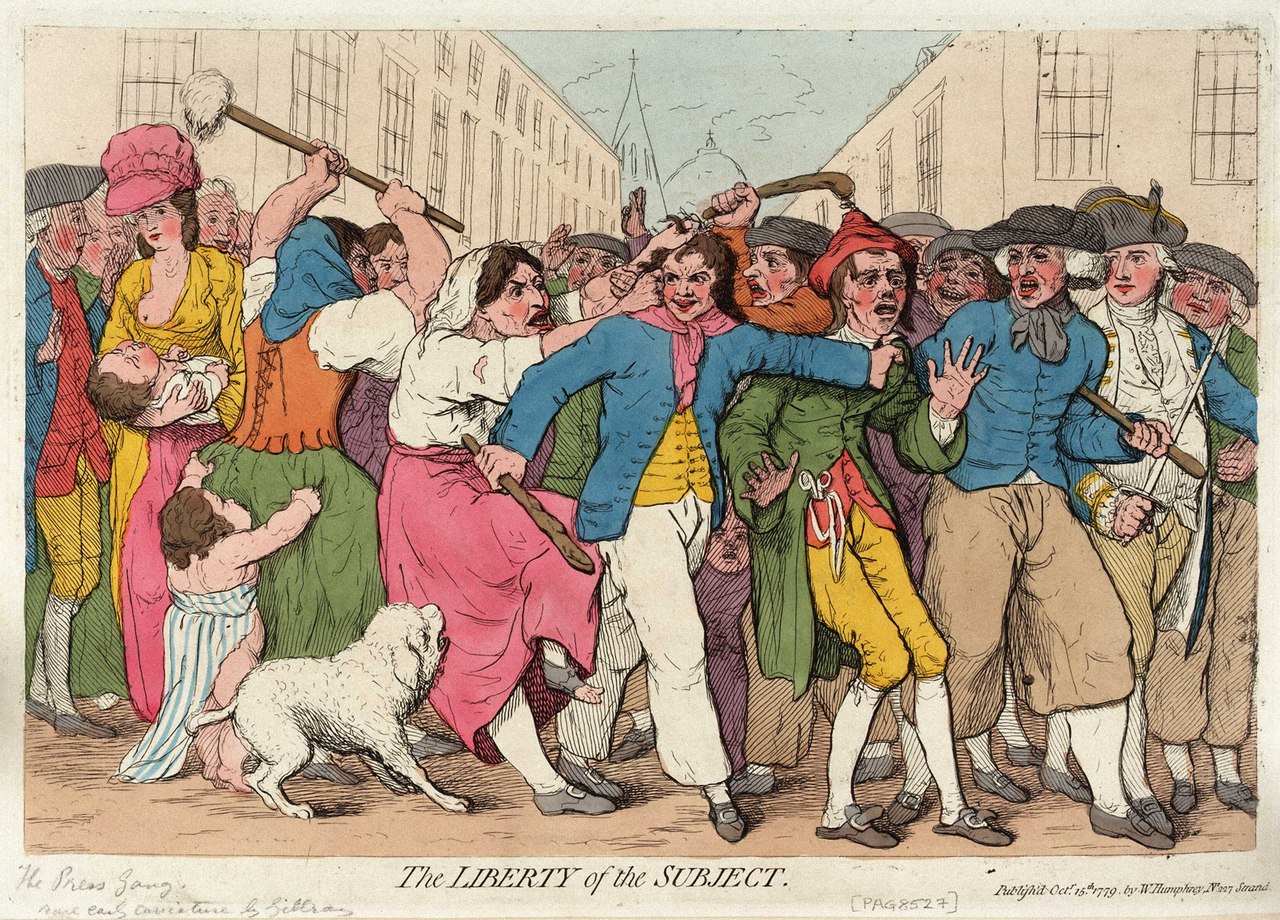
A press gang was a group of seamen headed by an officer bearing a warrant from the Lords of the Admiralty. They would search the streets of the ports, as well as taverns and lodgings frequented by seamen, looking for men to press. Obviously, seamen didn't want to be pressed and would change out of their distinctive clothes. The press gang would often check for tattoos and for the marks of tar on their hands, both of which were essentially unique to seamen. Randomly grabbing men off the street didn't make the press gangs popular with the locals, often dependent on the merchant marine for their livelihoods, who hindered them by means both legal and extralegal. These ranged from riots to one sailor whose sister came to visit and exchanged clothes with him, allowing him to walk away unmolested, while she was released later when they realized they had a woman on their hands.
There were a number of complexities in the application of the press gang. Some men were pressed in port by gangs from a specific ship, while others were taken by the impress service, which was regularly organized to provide men to various receiving ships around the country, from which men could be drafted for ships fitting out. Still others were pressed directly out of merchant ships at sea, a practice which ultimately led to the War of 1812 when the British kept boarding American merchant ships and taking what they claimed were deserters from them. Of course, many men were protected. Masters and mates could not be pressed, nor could most fishermen or men who were apprenticed or new to the sea. In addition to legitimate protections, there was a lively trade in forgeries, but neither were much use in extreme cases, when a "Hot Press" was declared, and protections were declared invalid.
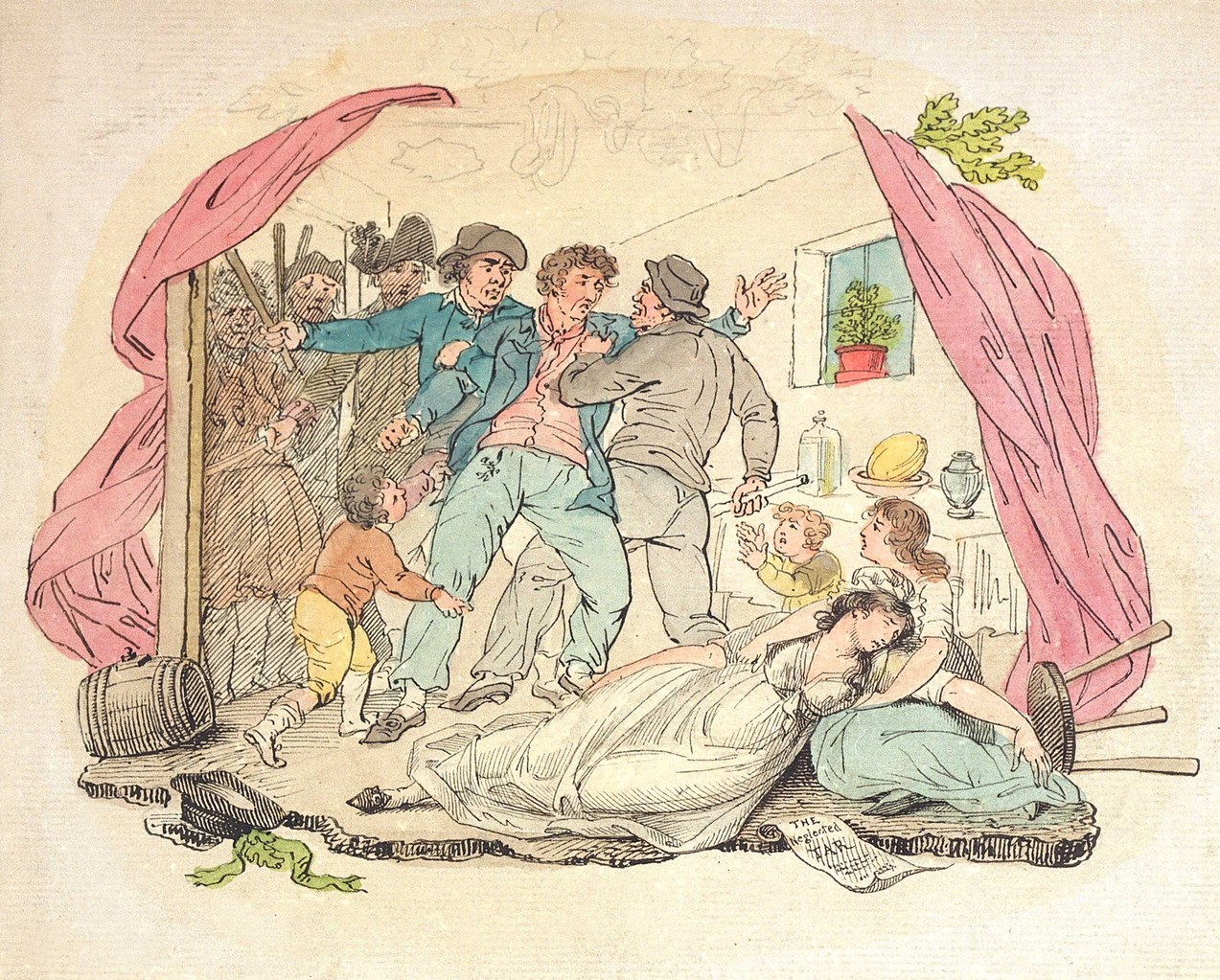
Impressment remained in use because there was no other practical way to man the fleet. While some men preferred naval service to merchant service and volunteered for it, wartime wages for merchant sailors were considerably higher than naval pay, so this wasn't enough to man the fleet. Recruiting bounties were often offered, with some success, although it wasn't uncommon for men to take the bounty, then desert and enlist on another ship. Landsmen were also encouraged to volunteer, and they did in some number, often for a bounty smaller than that offered to seamen.
That isn't to say that no landsmen ended up in the Navy involuntarily. While popular legends of the large-scale recruitment of prisoners are false, many men convicted of minor offenses, such as public drunkenness or unemployment, were sent into the navy, as were seamen and smugglers who ended up in jail. And in 1795, Parliament passed the first Quota Act, setting out a specified number of men that each county and city had to provide to the navy. Thousands of men were raised this way, mostly by the provision of extremely high bounties. A seaman counted as two landsmen, so the justices of the peace charged with implementing the Quota Acts were encouraged to provide useful men, and the whole country was incentivized by an embargo on sailings out of British ports until the quotas had been filled. This apparently lasted from February to December 1795, although it's unlikely that all sailings were actually halted for the whole of this period. Ultimately, 31,000 men were raised through the quota acts, although many were untrained and they were blamed for the Spithead and Nore mutinies of 1797.
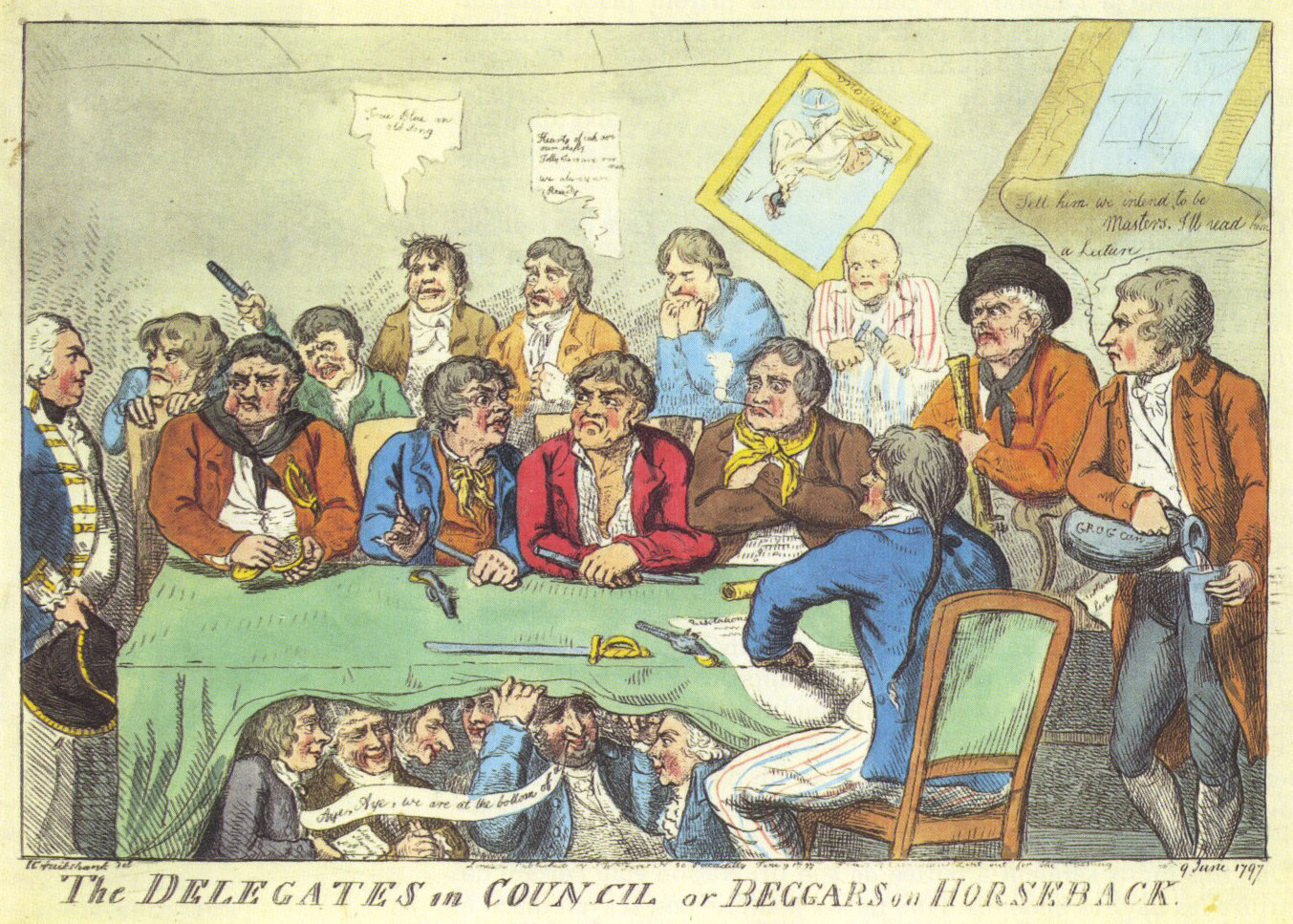
A caricature of the leaders of the Spithead Munity
With the end of the Napoleonic Wars, the press gang became unnecessary, although it was expressly affirmed by legislation in 1835, and it remained legal until the early 1900s. By the time of WWI, evolving manpower needs meant that naval manpower requirements were better filled by broad-based conscription of men who would have been classed as "landsmen" before the 20th century. Untrained men could be made useful fairly quickly due to changing technology, and nationalism had removed the opposition to forcible service in the Navy. The legacy of impressment survives only in historical misunderstandings.
1 Interestingly, the word "gang" originally just meant a party of sailors detailed for a specific task, and it might have been the press gang which started to give it its current meaning. ⇑
2 Yes, this is indeed a nautical term. There are a lot of ropes on a sailing ship, and it was important to know what you were supposed to do when the bosun was shouting "clew up the buntlines". ⇑

Comments
I'm impressed
You mention conscription later. Is this something different?
No and yes. No in that the end result (people told "get into uniform or else") was pretty much the same. Yes, in that conscription was deeply rooted in nationalism and popular support for the state, instead of being based on feudal rules. That, and it was applied in peacetime, too. Most European powers at the dawn of the 20th century practiced conscription the same way that places like Singapore, Israel and South Korea do. This works pretty well, because a universal draft is seen as fair and even unifying.
Would it be reasonable to suppose that in 2019 the degree of technical knowledge required to be an effective sailor has probably gone back to being something that can't be filled with general conscripts?
Hence a large scale naval war requiring a vast expansion of the navy (fill in your own speculative story as to how this happens) would need a revival of the Press, or "conscription but limited to people with experience in the industry".
Given the ludicrous amount of time it takes to procure a 21st century warship, a modern naval war will be "come as you are".
Even the most pessimistic projections of a peer state war don't suggest that mass conscription of civilians will be necessary, although trained reservists are fair game.
Is the technical knowledge specific to being on a ship, or does it have parallels on land.
I'd imagine a lot of roles could be filled by skilled blue-collar workers (with some IT professionals thrown in).
A lot of it is pretty ship-specific. There are a few roles that skilled people from outside could do, but a lot of people on ships are either doing specific nautical things (and the outside pool there is very small) or specific military things, which obviously have no outside pool.
"Impressment remained in use because there was no other practical way to man the fleet.... wartime wages for merchant sailors were considerably higher than naval pay"
Or in other words, there was no other way to man the fleet while paying below market wages. Also true for any other form of employment.
You mention people convicted of minor offenses. People convicted of non-clergyable (capital) felonies were frequently pardoned on condition of enlistment in the army or navy, with the result that, judging at least by a sample of cases that someone looked at, only a minority of those convicted of capital offenses were actually hanged. The other outs were a straight pardon or a pardon on condition of agreeing to transportation for seventeen years of indentured servitude.
I suppose, although there were often huge bounties for men joining up. It was kind of a mess.
My sources indicate that this wasn't a major part of the manpower pool. The big problem is that running a ship is a skilled occupation, and discipline was rather different from that of the Army. On land, you have space to spread out and Sergeants to deal with hard cases. There wasn't the same level of NCO leadership in the RN at the time, and men had to live in close quarters.